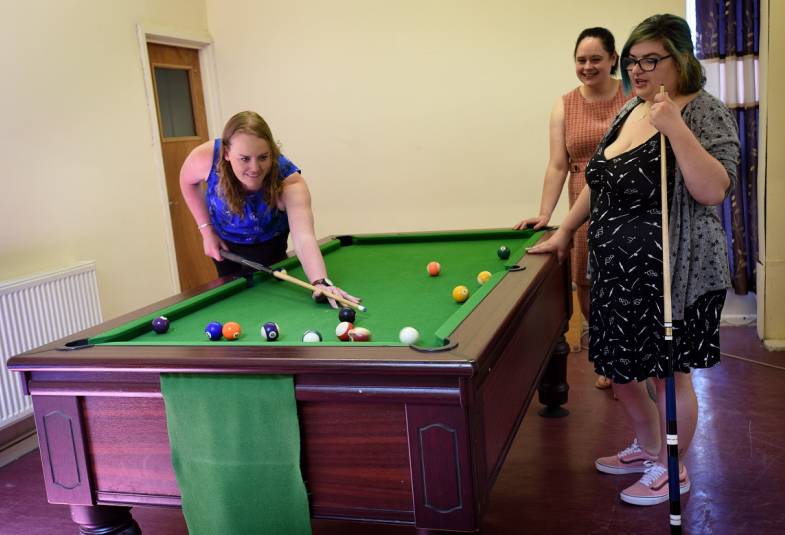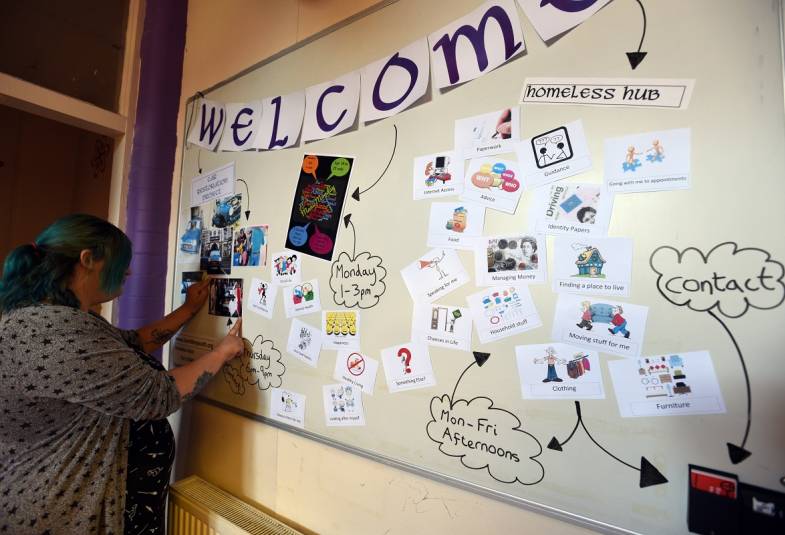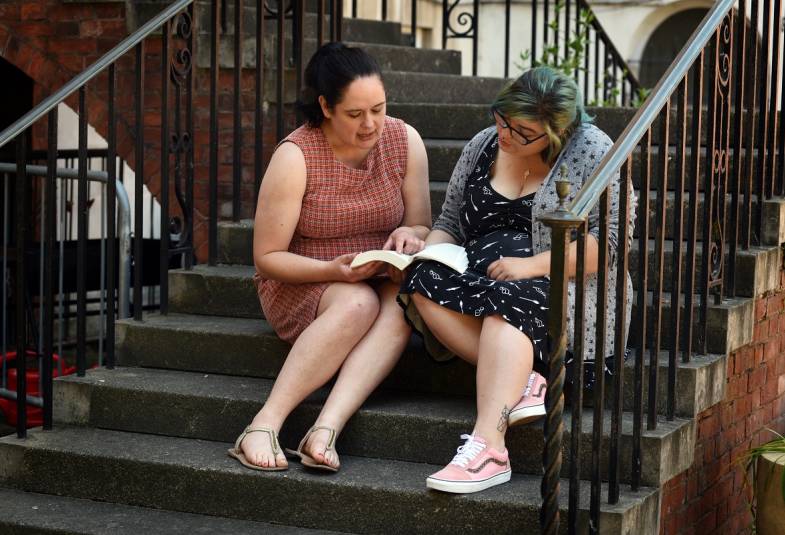Acceler8 is run by the Diocese of Coventry and supported by Strategic Development Funding as part of Renewal and Reform. It was established to encourage churches across the diocese to attract and inspire younger congregation members.
Acceler8 has employed nine 20s-30s Development Leaders in a range of churches and traditions with high concentrations of residents in their 20s and 30s. The Development Leaders work alongside vicars and congregations to help them in their discipleship of the younger generation.

Bombed in the Blitz, all that remains of Coventry’s medieval cathedral is the bell tower and the outer walls. It is a symbol of the tragedies the city has endured and overcome.
But out of it has come new life. The towering building, completed in 1962, has incorporated old and new into one unified cathedral. Children are on a school trip inside, and images of angels dance in a glass window. Office workers eat their packed lunches on benches in the ruins of the shattered building. And just round the corner, down a Dickensian cobbled alleyway, is the unassuming meeting place of Urban Hope.
Launched 12 years ago, Urban Hope aims to provide a fresh way of worshipping for people in their 20s and 30s for whom the cathedral, and indeed, churches in general, are an unknown world.
‘For too long we have accepted that our churches don’t have any 20s to 30s,’ says Kim Morgan-Jones, 20s-30s strategy team leader for the Diocese of Coventry. ‘But this isn’t the way that the church is meant to be. The church should reflect the body of Christ.’
So, what began as an outreach to a group of Goths who hung around outside the cathedral has become a social outreach to all people in their 20s and 30s. Most are not in education, employment or training. Prayer and communion are followed by food and activities, often including table tennis, walks, and treasure hunts. It’s not complicated or exotic, but it works.

Gemma Turley is living proof of that. She had a troubled childhood, living in many foster homes, and did not have a positive experience of Christianity growing up. But today, aged 28, adorned with piercings and tattoos, Gemma has come to faith and is now a children’s worker. She credits Urban Hope with that change.
‘In 2015, my friend mentioned Urban Hope to me,’ she says. ‘I didn’t want to go, but I did and it was really relaxed. If you wanted to play pool with your friends, you could.
‘It was a relief, because I could talk to people openly and honestly and if I had any issues, they were dealt with. I felt part of the community from day one.’
Now, she has a vision to help children find faith ‘on their own terms’. ‘I didn’t think I’d be the kind of person who would be accepted,’ she says. ‘But because of how far I have come in finding faith, if I can help one person find some comfort in faith, that would be great.’
With its purple walls, old sofas, and Christmas lights, Urban Hope has a relaxed, informal feel. But it’s the welcome board, just inside the entrance, that tells you everything you need to know about what goes on here, and explains why dozens of young adults, like Gemma, have found a spiritual home here.

Urban Hope, it says, offers, ‘a social life’, wants to help people with their ‘self-confidence, mental health and happiness’. It wants to encourage ‘less bad habits’ and help people look after themselves. They will ‘go to appointments’ with people, and ‘always be there’.
This was Gemma’s experience as she navigated her way from an apprenticeship to becoming a children’s worker. ‘They helped me change my outlook and feel more positive about things,’ she says.
Now, it is her faith that she wants to pass on: ‘My faith is my safe haven, my little home,’ she says. ‘When I’m feeling that I’m not going great, I can come back to my faith. When I was young, it would have been good to have someone like me to talk to.’
Numbers have grown at Urban Hope. Beks Rothnie, Development Leader at Urban Hope, recalls Sundays when there have been so many young adults that it has been hard to cater for them all.

‘Lasagne is the main attraction,’ she jokes, adding, ‘It’s let me see that there is so much more to God, so many more ways to explore, to relate, to find God. Most of the time it’s been really exciting to see people grow and change.’
Kim agrees. ‘It’s hope that people need,’ she says. ‘That’s what Jesus offers, what the church offers. That’s what society needs. Through Urban Hope, I’m seeing people get hope in their lives.’
Hope was shattered with the bombing of Coventry Cathedral. Now it stands as a symbol of old and new, of hope and reconciliation, and of faith enduring through even the most challenging situations. Round the corner, at Urban Hope, lives in which hope has been shattered are finding new meaning, and a fresh home has been born for today’s young adults.
Acceler8 is just one of many projects supported by the Church of England’s Renewal and Reform programme, aimed at creating a growing Church for all people and for all places.
